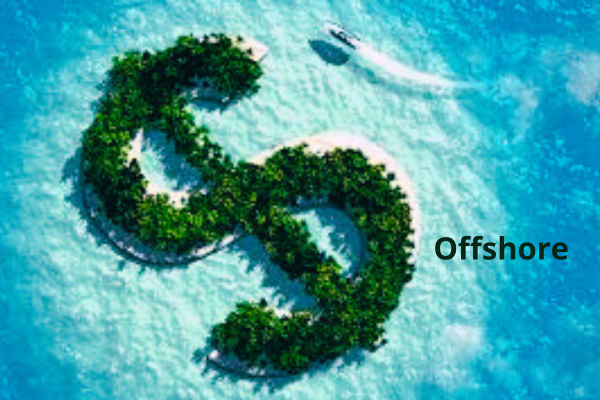🌐In an increasingly connected and economically unstable world, finding solid strategies to protect and diversify your wealth has become more than just an option — it’s a necessity. In this context, offshore investments are gaining relevance. While the term still holds a certain mystery for many, the truth is that it can represent a prudential solution for those seeking greater security and freedom with their capital.
If you’re looking to shield your money intelligently, this guide will clearly explain what offshore investments are, how they work, and why this structure can be advantageous for your business or personal financial planning.
🚢 What Are Offshore Investments?
Offshore investments are financial applications made outside the investor’s country of residence. This means, for example, opening an account at a commercial bank in another country, acquiring foreign assets, or setting up a company in a jurisdiction different from your tax residence.
The term “offshore” refers to a legitimate international structure that enables the management of resources beyond national borders, offering strategic benefits in terms of diversification, protection, and even business and succession planning.
💼 Why Invest Offshore?
There are several reasons to consider this type of investment. Below are some of the main advantages:
- Currency Protection
Holding part of your assets in strong currencies like the US dollar or euro helps protect against the devaluation of your local currency.
- Geographic Diversification
Being exposed to only one market is risky. Offshore investing expands your opportunities across sectors like energy, oil & gas, technology, and more.
- Asset Protection
By using legal structures abroad, you can safeguard your assets from local instabilities, arbitrary court decisions, or economic crises.
🌍 How to Start Investing Offshore
Many people believe that offshore investing is only for millionaires or large corporations. However, with the right guidance and a well-defined strategy, even small investors can start their journey.
The first step is to seek out a consultant specialized in this type of structure. An experienced professional will recommend the best options based on your risk profile and goals. They’ll also handle the legal and documentation aspects, avoiding issues with local and international regulations.
Additionally, having proper logistical support is essential. This includes choosing the right country, analyzing the solidity of the commercial bank where your funds will be allocated, and evaluating the operational viability of the company if your investment involves opening an international business (such as obtaining an EIN).
📈 Types of Offshore Investments
The offshore world offers a variety of investment options. Here are some of the most common:
- International Funds
Managed by renowned fund managers in major financial centers, these are options that combine security and performance.
- Foreign Stocks
Investing directly in international stock exchanges is a way to expose your capital to giants like Apple, Tesla, Shell (from the oil sector), or Siemens.
- Business Structures
Setting up a company abroad can be a strategic move, especially for those involved in the corporate, export, or tech sectors. Here, the key is prudent planning and ongoing legal support.
📊 The Role of Termia in Choosing a Jurisdiction
One of the most critical aspects of building an offshore structure is choosing the right jurisdiction. This is where the concept of termia comes in — it refers to analyzing the legal and operational security level of the country where the assets will be allocated.
From a jurisdictional standpoint, it’s important to evaluate:
Economic and political stability
Level of banking secrecy
International agreements and transparency
Ease of banking and commercial operations
A qualified consultant will be able to assess termia objectively and recommend jurisdictions that offer a balanced combination of security and flexibility.
⚠️ Important Considerations
Despite the many benefits, operating with offshore structures requires attention and responsibility. Transparency is essential — all assets must be properly declared to the relevant authorities in the United States.
Another crucial point is selecting a solid commercial bank that offers digital infrastructure, customer support, and compliance practices aligned with international standards.
🛡️ Offshore: A Smart Strategy, Not a Shortcut
Contrary to what some may think, offshore investing is not about hiding money or seeking illegal shortcuts. It’s a prudential strategy designed to bring stability and growth — whether for a personal project or a business with international operations.
With the support of a good consultant, efficient logistical structure, and well-grounded planning, an investor can build a true financial fortress, shielded from local risks.
🧭 Conclusion
Offshore investments are a smart and accessible alternative for those who want to protect their wealth, diversify assets, and plan for the future with greater security. More than just a financial decision, it’s a strategic move that can make all the difference in your growth journey.
If you want to start this process securely, the best course of action is to seek professional guidance and take the first step with knowledge and confidence.
Shielding your money starts with information. Now that you know this, why not turn this strategy into reality?

